WHAT WE DO
As a prototype CDMO (Contract Development and Manufacturing Organization), we develop processes for the manufacture of MEVs for multiple purposes; including R&D, and industry-scale non-GMP manufacturing of MEVs.
Our current manufacturing capacity yields 1X10exp13 MEVs/L, with batches up to 400 L.
Internal R&D programs
AGS-M produces and supplies all batches of empty and/or loaded MEVs required by AGS-TX for its internal R&D programs specifications (amount, quality, payload).
AGS-M also works hand-by-hand with AGS-TX towards future clinical development of AGS-TX’s product candidates.
AGS-TX (AGS Therapeutics) is a preclinical biotech company pioneering the use of microalgae extracellular vesicles (MEVs) as a universal delivery system for innovative human therapeutics, vaccines and gene therapies.
Collaborations with external partners
AGS-M produces and provides all batches of empty and/or loaded MEVs required by AGS-TX for its partnered programs specifications (amount, quality, payload). AGS-M thus produces all MEV materials used in the frame of AGS-TX’s collaborations with SANOFI (oral vaccines) and others (undisclosed).
AGS-M exclusively serves AGS-TX’s internal and partnered programs.
 LEARN MORE
LEARN MOREAs a prototype Contract Development and Manufacturing Organization, we develop industry-scale processes for the manufacture, loading, and analytics of microalgae extracellular vesicles (MEVs).

AGS-M produces, purifies, loads and characterizes MEVs from Chlorella loaded with a variety of biologically relevant modalities : DNAs (oligos, minicircles, plasmids, up 10Kb), RNAs (siRNAs, mRNAs, dsRNAs, lncRNAs), polypeptides (small peptides, large size proteins).
OUR PROCESSES ARE MEANT FOR MULTIPLE PURPOSES:

Non-GMP for research (current)
cGMP (batch 0) for regulatory preclinical development (in development)
cGMP-compliant for clinical trials (in development)
Future cGMP capacity (under development) will serve manufacturing for clinical studies.
AGS started its manufacturing processes together with Algosolis-GEPEA back in 2020, from whom AGS learned invaluable technical skills and received expert support on many aspects of the process.
AGS then initiated (2024) the internalization of the manufacturing process in house, including the production, purification, loading and analytics of the MEVs; together with the development of new avenues for MEV production, the improvement of every step along the process, and the upscaling of the production (higher yield per volume; higher volumes).
AGS-M has developed and scaled up a reproducible and robust manufacturing process for MEVs (1x10exp13 MEVs/L ; up to 400 L/batch), including payload loading and QC analytics. The process has completed TRL‑5/MRL‑5 validation and is currently at TRL‑6/MRL‑6.
The progress made on AGS’ internal product candidates, together with the initiation of collaborations with pharmas, has prompted us to focus efforts on GMP compliance thus transitioning the existing processes into GMP, in view of the need for MEV material to be used in regulatory preclinical and then initial clinical studies.
In parallel to scaling-up the manufacturing process into GMP compliance - including MEV production, purification, and loading - the analytical framework is undergoing validation to support progression toward clinical studies planned for end of 2027 timeframe.
AGS-M has initiated the construction work for its future DEMONSTRATION Manufacturing Unit, dedicated to the production of MEVs.

Site’s surface area = xx
GMP quality
Construction and implementation in partnership with XX

Financing of XM€
Location XX
DMU in condition to deliver the first batch in time for the filing of AGS’ first IND (Investigation on New Drug) to the FDA, in early 2026.

>> link to PIPELINE AGS Therapeutics
AGS-M is currently producing and delivering non-GMP batches of MEVs to AGS-TX's internal and partnered programs.
AGS’s MEV Platform Technology is two-fold and rests on two breakthrough pillars.
The MEVs themselves
A new delivery system with unique capabilities: universal, competitive, with unmatched tissue access and payload versatility, compared to existing delivery systems: LNPs, mammalian EVs, AAVs.

The manufacturing (and loading) processes of MEVs
A literally green, measurably sustainable and cost-effective process, representing a new manufacturing standard compared to traditional, much more polluting biotechnological production processes.
Two pillars that create a unique combination of scientific novelty, industrial scalability, environmental responsibility, and market readiness.



The Critical Problem Facing Pharmaceutical Companies
Pharma/Biotech companies developing therapeutics based on new modalities like RNAs and DNAs face fundamental qualitative and manufacturing bottlenecks that prevent breakthrough treatments from reaching clinical development and commercial viability. This is due to the critical limitations that current drug delivery systems (LNPs, AAVs, mammalian EVs) suffer from, which create insurmountable barriers for innovative therapeutic development.
AGS’s MEV Platform Technology
provides a unique solution

Natural tropism (naïve, non-engineered MEVs) empowered by natural RoA.
Broader tissue access to retina, intestines, CNS, lungs, lymph nodes.
RNAs, DNAs, proteins, peptides.
Eye drops, oral, intranasal, inhalation.
Critical for chronic and gene therapies.
Low CO2 footprint, low energy requirement, no solvents, recyclable biomass.
Bulk MEV production as a multipurpose envelope decoupled from payload loading.
industrial process validated and scalable. GMP compliance ongoing.
Robust, expanding patent portfolio covering MEV biology, payloads, routes, and uses, with protection until 2041–2044.

AGS-M has initiated the construction work for its future Pilot Manufacturing Unit, dedicated to the production of MEVs.

Site’s surface area = xx
GMP quality
Construction and implementation in partnership with XX

Financing of XM€
Localisation XX
PMU in conditions to deliver the first batch in time for the filing of AGS’ first IND (Investigation on New Drug) to the FDA, in early 2026.

>> link to PIPELINE AGS Therapeutics

AGS-M has initiated the construction work for its future Pilot Manufacturing Unit, dedicated to the production of MEVs.
Site’s surface area = xx
GMP quality

Construction and implementation in partnership with XX
Financing of XM€
Localisation XX

PMU in conditions to deliver the first batch in time for the filing of AGS’ first IND (Investigation on New Drug) to the FDA, in early 2026.
>> link to PIPELINE AGS Therapeutics

AGS-M has initiated the construction work for its future Pilot Manufacturing Unit, dedicated to the production of MEVs.
Site’s surface area = xx
GMP quality

Construction and implementation in partnership with XX
Financing of XM€
Localisation XX

PMU in conditions to deliver the first batch in time for the filing of AGS’ first IND (Investigation on New Drug) to the FDA, in early 2026.
>> link to PIPELINE AGS Therapeutics